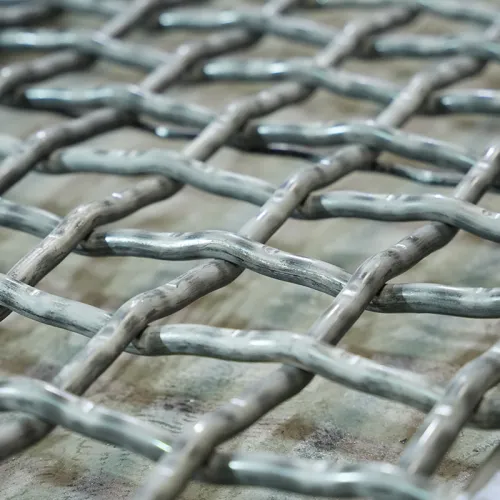Why Finer Vibrating Screen Mesh Can Lower Your Screening Efficiency
Many operators assume that using a finer vibrating screen mesh will automatically improve screening accuracy. While that might seem logical, in reality, it often leads to decreased screening efficiency, higher downtime, and increased operational costs.
Smaller Openings, Slower Throughput
Finer mesh has smaller openings, which means less material can pass through in a given time. This reduces the throughput rate significantly, especially when processing bulk materials. If your production line relies on high volume, finer mesh can become a major bottleneck.
Faster Blinding and Clogging
With finer mesh, the risk of blinding and clogging increases drastically. Fine particles and moisture can easily block the apertures, especially in sticky or damp materials. Once the mesh blinds, the screen loses its separating function, leading to contamination and material loss.
Increased Wear and Tear
Thinner wires used in finer mesh wear out faster under vibration and load. This means more frequent mesh replacements, more downtime, and higher maintenance costs. In contrast, coarser mesh is more robust and can withstand abrasive materials longer.
Reduced Vibration Efficiency
Vibrating screens rely on vibration to stratify material and separate particles. Finer mesh dampens the vibration energy more than coarser mesh, reducing the screen’s ability to throw materials upward. This makes it harder for particles to find the right size aperture, especially in wet or dense materials.
Misaligned Expectations in Particle Size Control
Operators often expect finer mesh to give them better particle size control. However, if the screen becomes blocked or overloaded, it may discharge undersized particles along with the oversize, defeating the purpose of fine screening altogether.
Best Practices for Mesh Selection
To optimize screening performance, match mesh size with your material type and production goals:
Use medium to coarse mesh for high-capacity screening
Apply finer mesh only for final-stage precision or low-volume applications
Additional resources:
Secure Your Space: Why the 358 Fence is the Ultimate Solution for Modern Safety Concerns
Ultimate Guide to Low-Maintenance Hurricane Screens
Why Consider Sustainable Practices in Epoxy Coating?
What Benefits Does ODM Euro Panel Fence Offer?
How Can One-Way Mesh UV Protection Enhance Your Outdoor Comfort?
Unlocking Value: Affordable Flame Retardant Fiberglass Screens That Protect Your Home
Is Your Flame Retardant Fiberglass Screen Safe Enough for Your Home?Consider self-cleaning or anti-blinding screens if fine mesh is necessary
Regularly inspect and tension the mesh to maintain open area
When Finer Mesh Makes Sense
There are cases where fine mesh is necessary, such as:
Final sifting of powders or fine aggregates
Moisture-free, low-volume operations
Applications with dedicated anti-blinding systems
However, for most bulk screening operations, finer mesh does more harm than good.
Finer vibrating screen mesh may look like a precision upgrade, but in most industrial applications, it reduces efficiency, speeds up wear, and increases maintenance. Choosing the right mesh size for your specific material and goals is the key to reliable screening performance.
Additional resources:Hot Dipped Galvanized Iron Wire Supplier vs. Standard Iron Wire: A Comparison
Why Does Fiberglass Temperature Resistance Matter?
Unlock Savings: How Fence Wholesale Can Solve Your Budget Woes!
Why Choose a Zinc Steel Fence for Your Property?
Benefits and Applications of Double Wire Fencing Solutions
Key Benefits of Gabion Cage Retaining Walls Explained
How Can Welded Gabion Baskets for Flood Protection Help?








